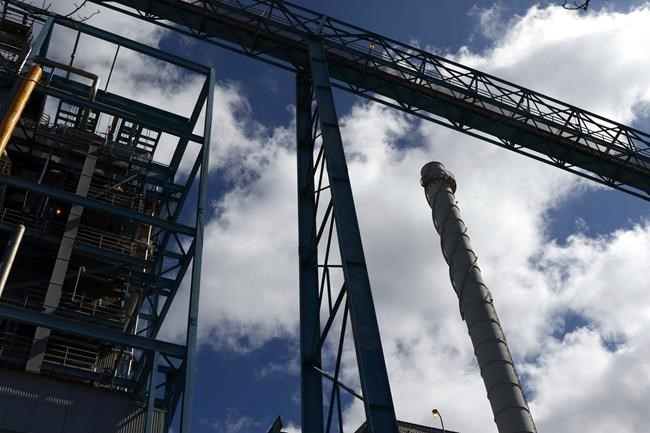
FILE - The AES Corporation's coal-fired power plant is shown in Kapolei, Hawaii during a ceremony to mark the closure of the facility, Thursday, Aug. 18, 2022. AES Corporation said potential new uses for their 8.5-acre property in Kapolei include battery storage, solar and even wind power, the Honolulu Star-Advertiser reported Wednesday, May 17, 2023. (AP Photo/Caleb Jones, File)
May 17, 2023 - 12:01 PM
HONOLULU (AP) — An energy storage farm could replace Hawaii’s last coal-fired power plant that closed in 2022 after 30 years.
The AES Corporation coal plant produced up to one-fifth of the electricity on Oahu — the most populous island in the state. Taking it offline meant an end to the 1.5 million metric tons of greenhouse gases that were emitted annually, then-Gov. David Ige said as it was about to shutdown in September.
The company said potential new uses for the 8.5-acre property in Kapolei include battery storage, solar and even wind power, the Honolulu Star-Advertiser reported Wednesday.
Energy storage farms are increasingly taking the place of old coal plants.
Nearby, the largest stand-alone energy system in the state has been under construction since last year. The project has an energy storage capacity of 565 megawatt-hours and is being developed by San Francisco-based Plus Power.
Storage projects allow utility operator Hawaiian Electric to accept and use more intermittent power from renewable sources, including rooftop solar.
Electricity generated by burning oil remains the largest source of power for Hawaiian Electric, which serves Oahu, Hawaii Island, Maui, Molokai and Lanai. The utility company reported that 32% of power generation in 2022 was from renewable sources.
Like other Pacific islands, Hawaii has suffered the cascading impacts of climate change. The state is experiencing the destruction of coral reefs from bleaching associated with increased ocean temperatures, rapid sea level rise, more intense storms and drought that is increasing the state’s wildfire risk.
In 2020, Hawaii’s Legislature passed a law banning the use of coal for energy production by the start of 2023. Hawaii has mandated a transition to 100% renewable energy by 2045 and was the first state to set such a goal.
News from © The Associated Press, 2023